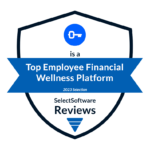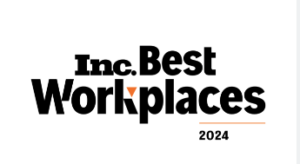Key takeaways:
|
The Consumer Financial Protection Bureau (CFPB)—the federal watchdog for financial products—has put the market on notice. It will aggressively use an increasingly central weapon in its arsenal: The ability to punish violations of a broad legal standard called “abusiveness.” States are empowered to go after violations as well.
Employers who offer employee benefits using point solutions like lenders risk getting caught in watchdogs’ crosshairs. Instead, employers should partner with unbiased financial wellness providers that do not make money on products. Unbiased solutions won’t just maximize your ROI, they will also reduce your risk.
The dilemma: New risks of employee benefits running afoul of CFPB enforcement
Some background on this new CFPB regulatory tool. In 2010, Congress created the CFPB and gave it new authority to punish “abusive” practices after the subprime mortgage scandals and the Great Financial Crisis. In April, the CFPB sent a shot across the bow to industry by releasing a broad statement summarizing its history of enforcing against abusive practices and how it interprets its authority to go after such practices going forward.
There are two main circumstances that can lead to an abusiveness violation. First, if the provider “materially interferes” with the consumer’s ability to understand something about the product. The second is if the provider takes “unreasonable advantage” of the consumer.
The problem for benefits buyers: The CFPB’s statements leave very wide room for interpretation. No one really knows what will come to be punished under the abusiveness label. The main thing we do know is that the CFPB is on the offensive.
The abusiveness legal weapon is an example of “principles-based” regulation. The virtues of principles-based approaches are consumer protection rigor, flexibility, and future-proofing. The downsides can include confusion and uncertainty, and risk to even those who are trying to comply.
The answer: Be at the vanguard of consumer protection for your employees—and safeguard your bottom line.
The good news: Unlike banks and lenders, employers are very well positioned for the new era that the newly muscular CFPB has ushered in. Employers directly benefit from the best strategy for when regulators emphasize aggressive, principle-based approaches. That employer strategy: An aggressive, principles-based financial health benefits agenda.
After all, the CFPB, other regulators, and employers want the same things: Rigorous protections and better financial health for employees. But as we have seen from the history of 401(k) litigation around fees and breach of fiduciary duty, wanting the right things isn’t sufficient to guard against costly legal headaches.
Why are financial point solutions risky for employers?
As a benefits buyer, you are probably already doing most of what you need to be doing: Focusing on financial health outcomes, rather than a check the box approach. Because that’s how the evidence has shown you get ROI with your benefits dollars.
What you might not appreciate fully is how risky it is to work directly with financial point solutions, particularly in light of abusiveness authority.
Perhaps you’re used to the 401(k) world, where you allow providers to directly contact employees. But consumer financial products are a different ballgame, and one that brings new kinds of risk to your employees, and ultimately your company. This is particularly true for products that have high costs and a credit component, such as installment loans and earned wage access. Or banking products like spending and savings accounts, which are historically fertile ground for hidden fees.
It comes down to economic incentives. Point solutions are companies that specialize in offering a financial product that is distributed through your employees. They typically make money the more people use their products and the more employees trigger interest and fees.
And so they are always facing incentives to gain more of your employee market share—even for employees who aren’t better off taking a loan, for example. Or to squeeze more fees and interest out per user.
Of course, most people want to do good. But unfortunately, historically, we’ve seen many point solution companies tempted to the dark side. Perhaps marketing campaigns designed to tempt employees to take out loans or wage advances for things they don’t need. Perhaps a little fee padded onto the backend of a loan or savings account to make the sticker price sound lower.
Well, that’s just what the CFPB’s and states’ abusiveness powers are designed to respond to: the incentives to do wrong by users to boost the financial provider’s profits.
What does an aggressive, principles-based corporate benefits strategy look like?
It looks like putting point solutions back in their proper place: Behind a trusted gatekeeper. Someone you can rely on to curate solutions that meet strong consumer protection standards. And to educate on those solutions at the point of need, rather than push them on employees in ways that the CFPB or states may later find abusive.
At Brightside, we were founded by benefits leaders who were sick of abuses of consumers in the marketplace. We never make money off products your employees use. We are well positioned to help our employer partners in this new era of broad aggressive standards from the CFPB and states because they complement what we and our partners are already doing: Keeping point solutions honest, and keeping them in their place.
Click here to learn more about Brightside Financial Care, and why our unbiased model is an alternative to ineffective financial wellness and risky point solutions.
Written by Sophie Raseman, Head of Financial Solutions at Brightside





